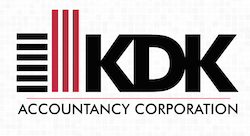The US is losing ground when it comes to retirement security
The U.S. is falling further behind other countries.
Norway, Switzerland and Iceland rank highest on a global retirement security index.
All your retirement dreams can come true, just maybe not in the U.S.
Among the leading nations for retirement security, the United States didn’t even crack the top 15, according to the 2017 Global Retirement Index by Natixis Global Asset Management.
Europe, however, continued to dominate the top spots, with Norway at No. 1 for the second year in a row, followed by Switzerland and Iceland. Sweden ranked No. 4 and New Zealand rounded out the top 5, Natixis reported.
The top 20 nations, along with their standing in last year’s Global Retirement Index, are:
| 1. Norway (No. 1 in 2016) | 6. Australia (6) | 11. Canada (10) | 16. Czech Republic (18) |
| 2. Switzerland (2) | 7. Germany (7) | 12. Finland (11) | 17. United States (14) |
| 3. Iceland (3) | 8. Denmark (12) | 13. Austira (9) | 18. United Kingdom (17) |
| 4. Sweden (5) | 9. Netherlands (8) | 14. Ireland (16) | 19. France (20) |
| 5. New Zealand (4) | 10. Luxembourg (13) | 15. Belgium (15) | 20. Israel (19) |
Source: Natixis Global Asset
With more retirees around the world responsible for their own financial security, the countries that ranked the best benefited from a combination of strong social programs, widely accessible health care and low levels of income inequality, according to Natixis.
Recent public spending in top-ranked Norway has bolstered the nation’s pension plans, helped in part by the country’s massive sovereign wealth fund. Other high-ranked countries, such as New Zealand and Australia, have universal, mandatory retirement savings plans.
Meanwhile, the United States slipped three spots to 17th for retirement security, according to the report.
Despite high per-capita income, stable financial institutions, low inflation, low unemployment and clean air, the U.S. also has one of the highest levels of income inequality among developed nations and a growing ratio of retirees to employment-age adults, which means there are fewer workers to support programs such as Social Security and Medicare.
Read more of this article: http://cnb.cx/2h4Eko8
Shared from: cnbc.com






